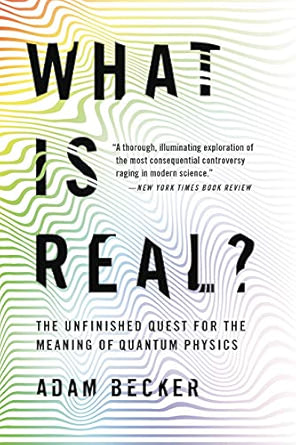It’s difficult for ordinary computers to factor large numbers—and, as Shor well knew, this difficulty was the basis for nearly all forms of practical cryptography, especially for secure communications over the newly burgeoning Internet. Shor had demonstrated that any kind of secure financial transaction over a computer network—from buying books to trading stocks—would be impossible to accomplish by conventional means in a world with working quantum computers. But, by that time, quantum information theory had also yielded a solution to this problem: quantum cryptography.
I'm not quite sure about this.My sense is that considerable amounts of modern crypto would survive in a post-quantum world: In particular, Kerberos would still be secure. Contra-wise, quantum crypto doesn't do authentication which is the important bit that public-key crypto gets you.


